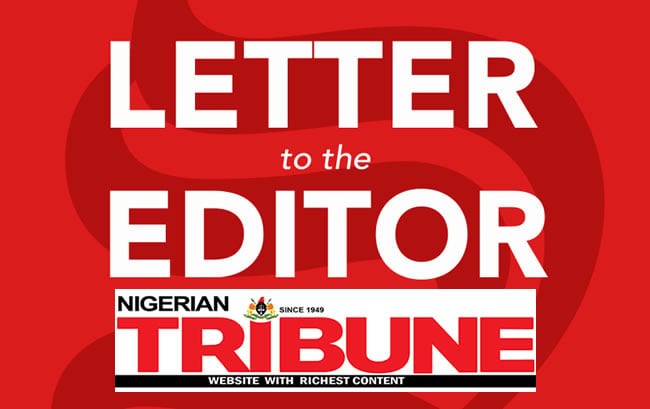Theater at Osun Electoral Court as parties adopt final addresses
• Adeleke falsified the certificate, insists Oyetola's lawyer• Adeleke disavows INEC's BVAS report• There were violations at 1,750 polling stations – INEC
The Osun Electoral Court sitting in Osogbo, headed by Judge Tetsea Kume, on Friday admitted the written addresses of the parties involved in the dispute, after All Progressives Congress (APC) lawyer Adegboyega Oyetola and those of Senator Ademola Adeleke, the Peoples Democratic Party (PDP) and the Independent National Electoral Commission (INEC), pleaded and adopted their latest written statements before the Tribunal.
It was even then that Oyetola's lawyer insisted that Senator Adeleke had submitted false certificates, after submitting a testimony supposedly issued by the Ede Muslim High School, bearing the State of Osun at a time when Osun was not established and another attestation letter from Ede Muslim High School, to show that he attended secondary school.
The petitioners insisted that if the governor had indeed attended Ede Muslim High School, he could not have presented an attestation letter from Ede Muslim High School to show that he was attending a school secondary.
Submitting their submissions to the Tribunal, counsel for Oyetola and APC, led by Prince Lateef Fagbemi, SAN, noted that the mere fact that INEC at no time indicates that the CTC BVAS report given to the Claimants was temporary or unsynchronized, the Tribunal should accept it as the best evidence in the circumstances, adding that the second CTC BVAS report given to the PDP and Senator Adeleke by the INEC was an afterthought, particularly because that it was requested after the claimants filed their claim with the Tribunal.
Prince Fagbemi went further by saying that even in the CTC BVAS report given to the PDP and Senator Adeleke, there were violations in more than 100 polling stations. He therefore urged the Tribunal to declare Oyetola the winner of the election, after nullifying the votes of the disputed voting units.
In his own argument, INEC lawyer Prof. Paul Ananaba argued that there were discrepancies at 1,750 polling stations, saying election results are continuously updated .
He stated that at the time the first CTC BVAS report was provided to the Claimants, some "data was still outstanding" and that it was the second CTC BVAS report that was synchronized on which the Tribunal had to look. press.
It was then that Adeleke Onyeachi Ikpeazu's lawyer disavowed the second BVAS report of the INEC CTC, a document that the INEC relied on in court to defend its statement that the Senator Adeleke was the winner of the July 16 gubernatorial election.
Defending his arguments in court, Fagbemi said, "I declare that only the Independent National Electoral Commission (INEC) is legally responsible for conducting the elections. I submit that where there is an allegation of the conduct of the election, it is only the INEC that has the responsibility to show the contrary.
"The Petitioners' grouses regarding these grounds, are on the conduct of the election. I further submit that the 2nd Defendant's attempt to discredit Exhibit R.BVR should be rescinded as directed by the 2nd Defendant (Adeleke) .
“I argue we are in for a brand new voter dispensation, unless we know about it we will just wallow. I started with the concept of over-voting, is different in the current legal regime of the previous legal regime.
"Section 51(2) of the Electricity Act defines excessive voting, which is clearly different from the position of Section 33 of the Elections Act 2011. Section 47(2) of the Electoral Act 2022, read in conjunction with Section 20 of the Conduct of Elections Regulations (Exhibit 1), mandates the use of the BVAS and not the voter register to determine credentialed voters.
"I submit that Exhibit 2R.RW2 at paragraph 1.2, did not mention any voter register as part of the documents he used and I submit that the witness did not consider it necessary, hence his refusal to state that he used it.
“Section 64(4) of the Elections Act 2022 is the provision of the act that requires the ranking by the President to be satisfied by the number of accredited voters. I submit that the concept of synchronization is unknown of electoral laws. What it recognizes is that when a voter is not recognized by the BVAS machine, such voter will not be allowed to vote. The only occasion that data fusion occurs on two BVAS machines is when two BVAS machines have been used in a voting unit and they must be used or performed at the level of the voting unit - see the paragraph in the annexes.
"I maintain that there was no report of fusion of BVAS machine data used in the voting unit during the electoral contest. I maintain that the INEC did not indicate any date in its writings indicating that she has used more than one BVAS machine in a ballot.The intent of the law, i.e. section 64(4) (a...

• Adeleke falsified the certificate, insists Oyetola's lawyer• Adeleke disavows INEC's BVAS report• There were violations at 1,750 polling stations – INEC
The Osun Electoral Court sitting in Osogbo, headed by Judge Tetsea Kume, on Friday admitted the written addresses of the parties involved in the dispute, after All Progressives Congress (APC) lawyer Adegboyega Oyetola and those of Senator Ademola Adeleke, the Peoples Democratic Party (PDP) and the Independent National Electoral Commission (INEC), pleaded and adopted their latest written statements before the Tribunal.
It was even then that Oyetola's lawyer insisted that Senator Adeleke had submitted false certificates, after submitting a testimony supposedly issued by the Ede Muslim High School, bearing the State of Osun at a time when Osun was not established and another attestation letter from Ede Muslim High School, to show that he attended secondary school.
The petitioners insisted that if the governor had indeed attended Ede Muslim High School, he could not have presented an attestation letter from Ede Muslim High School to show that he was attending a school secondary.
Submitting their submissions to the Tribunal, counsel for Oyetola and APC, led by Prince Lateef Fagbemi, SAN, noted that the mere fact that INEC at no time indicates that the CTC BVAS report given to the Claimants was temporary or unsynchronized, the Tribunal should accept it as the best evidence in the circumstances, adding that the second CTC BVAS report given to the PDP and Senator Adeleke by the INEC was an afterthought, particularly because that it was requested after the claimants filed their claim with the Tribunal.
Prince Fagbemi went further by saying that even in the CTC BVAS report given to the PDP and Senator Adeleke, there were violations in more than 100 polling stations. He therefore urged the Tribunal to declare Oyetola the winner of the election, after nullifying the votes of the disputed voting units.
In his own argument, INEC lawyer Prof. Paul Ananaba argued that there were discrepancies at 1,750 polling stations, saying election results are continuously updated .
He stated that at the time the first CTC BVAS report was provided to the Claimants, some "data was still outstanding" and that it was the second CTC BVAS report that was synchronized on which the Tribunal had to look. press.
It was then that Adeleke Onyeachi Ikpeazu's lawyer disavowed the second BVAS report of the INEC CTC, a document that the INEC relied on in court to defend its statement that the Senator Adeleke was the winner of the July 16 gubernatorial election.
Defending his arguments in court, Fagbemi said, "I declare that only the Independent National Electoral Commission (INEC) is legally responsible for conducting the elections. I submit that where there is an allegation of the conduct of the election, it is only the INEC that has the responsibility to show the contrary.
"The Petitioners' grouses regarding these grounds, are on the conduct of the election. I further submit that the 2nd Defendant's attempt to discredit Exhibit R.BVR should be rescinded as directed by the 2nd Defendant (Adeleke) .
“I argue we are in for a brand new voter dispensation, unless we know about it we will just wallow. I started with the concept of over-voting, is different in the current legal regime of the previous legal regime.
"Section 51(2) of the Electricity Act defines excessive voting, which is clearly different from the position of Section 33 of the Elections Act 2011. Section 47(2) of the Electoral Act 2022, read in conjunction with Section 20 of the Conduct of Elections Regulations (Exhibit 1), mandates the use of the BVAS and not the voter register to determine credentialed voters.
"I submit that Exhibit 2R.RW2 at paragraph 1.2, did not mention any voter register as part of the documents he used and I submit that the witness did not consider it necessary, hence his refusal to state that he used it.
“Section 64(4) of the Elections Act 2022 is the provision of the act that requires the ranking by the President to be satisfied by the number of accredited voters. I submit that the concept of synchronization is unknown of electoral laws. What it recognizes is that when a voter is not recognized by the BVAS machine, such voter will not be allowed to vote. The only occasion that data fusion occurs on two BVAS machines is when two BVAS machines have been used in a voting unit and they must be used or performed at the level of the voting unit - see the paragraph in the annexes.
"I maintain that there was no report of fusion of BVAS machine data used in the voting unit during the electoral contest. I maintain that the INEC did not indicate any date in its writings indicating that she has used more than one BVAS machine in a ballot.The intent of the law, i.e. section 64(4) (a...
What's Your Reaction?






















